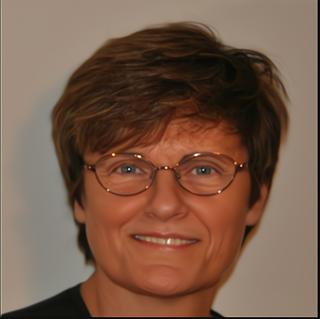Coronavirus Disease 2019
7 Lessons for Success Learned From a COVID Vaccine Inventor
The story of Dr. Katalin Karikó and her key ingredients for success.
Posted October 8, 2021 Reviewed by Davia Sills
Key points
- Dr. Katalin Karikó, one of the inventors of the messenger RNA COVID vaccine, started her life in Hungary with no running water or refrigerator.
- Dr. Karikó's road to success took 40 years, and through her story, we extracted her 7 ingredients for success.
- One of the main ingredients for success is to never give up; it takes hard work and resilience to make the impossible possible.
- Dr. Karikó's fight for her beliefs is a great lesson for every researcher.

Dr. Katalin Karikó, one of the inventors of the messenger RNA COVID-19 vaccine, was recently awarded (with Dr. Drew Weissman) the 2022 Breakthrough Prize in Life Sciences.
Dr. Karikó’s success story, from her childhood in Hungary in a house without running water, a refrigerator, or television to her being known worldwide for her invention of a non-immunogenic (doesn’t get rejected by the body) messenger RNA technique now used in every Pfizer-BioNTech and Moderna COVID-19 vaccine, is very inspirational, and people can learn a few important lessons from it:
Lesson 1: Never give up.
If you have a vision of something that has never been done before and think you can create it successfully, work on it as much as you can whenever you can. The future belongs to people who don’t give up.
In 1980, Katalin Karikó had a vision of creating a messenger RNA that could treat a lot of ailments, and Katalin worked on her vision relentlessly for the last 40 years until finally, in 2020, her technique got used by Pfizer-BioNTech and Moderna to create the well-known coronavirus vaccines widely used today to fight our COVID-19 pandemic.
When interviewed, Dr. Elliot Barnathan, who had a basic research lab in 1989 at the University of Pennsylvania and who is now a Senior Director at Janssen Research and Development, recalled:
“In 1989, when I was recruiting somebody with good molecular biology skills to work in my lab, Katalin Karikó was among the multiple people who applied. When she didn’t hear from my lab, she called my secretary to tell her that I should look at her resume again, which I did. I called her to interview her that very same day, and she impressed me immediately by the combination of her knowledge and enthusiasm. I hired her right away.”
Dr. Barnathan also said about Dr. Katalin Karikó:
“Kati succeeds because she learns from every experiment, whether the experiment works or not. She is able to design precise experiments, using several controls to answer a key question. She is a voracious reader, and she would come to the lab everyday knowing the latest research, finding ways to use what she just learned for her future experiments. She is the best bench scientist I have ever met."
Dr. Barnathan added, “Kati is all about advancing science, doing the right thing, and seeking the truth, and she does this with intense passion. She taught me way more than I could ever teach her.”
Lesson 2: Be open to new possibilities.
If you are working on an invention with goal A, and somebody offers you to collaborate on the same invention but with goal B, which is very different than goal A, be open to that collaboration. The new collaboration might bring new ideas into focus and ultimately bring you success.
Here is an example of how new collaborations led Dr. Karikó to success:
As Dr. Karikó explained to us, she was working in 1998 on using messenger RNA to treat cerebral diseases and strokes when she met Dr. Drew Weissman, who was working on creating a vaccine against HIV.
Dr. Karikó told us that while collaborating with Dr. Weissman, she soon realized that the mRNA she was making was inflammatory, thus useless for treating stroke patients, which was her ultimate goal. Because she had worked on the mRNA therapeutic project for a decade by then, she was disappointed that the mRNA she made was useless and started to investigate if she could create a non-immunogenic messenger RNA that could be used for therapy.
When Dr. Karikó met with Dr. Ugur Sahin, CEO of BioNTech, in Germany in 2013, she was offered a vice president position in the company and the opportunity to develop nucleoside-modified mRNA for therapy.
Later, in 2017, together with Drew Weissman and Norbert Pardi, Dr. Karikó says they published their surprising discovery that non-immunogenic mRNA formulated with Lipid Nano Particle (LNP) was also a very potent vaccine against Zika virus.
Later she also started to use non-inflammatory mRNA to create a flu vaccine.
When the coronavirus pandemic started in 2020, BioNTech switched to focus on creating an mRNA coronavirus vaccine, which is ultimately what became successful and widely used all over the world.
Lesson 3: Get a support system.
Cultivate relationships, get a support system, and even create a rebel alliance with people with whom you can be friends and work.
Dr. Karikó’s support system was her husband, her daughter, and the other researchers at the University of Szeged, the Biological Research Center, Szeged Hungary, then at Temple University, and lastly at the University of Pennsylvania starting with Dr. Elliot Barnathan.
Her friendship and deep collaboration with Dr. Drew Weissman, whom she met at the University of Pennsylvania in 1998, allowed them to fight together to bring their mRNA technique to success. Later the collaboration with Dr. Ugur Sahin and his wife, Dr. Ozlem Türeci, led to the success of the mRNA COVID-19 vaccine.
Lesson 4: Know when to be more loyal to your idea than to your organization.
Dr. Karikó explained to us that in 1995, the University of Pennsylvania demoted her from her faculty position, leading to a tenure position, to a lower, post-doc-level position that couldn’t lead to any tenure but could allow her to continue her research. However, her colleague, Dr. Elliot Barnathan, continued to support her salary and gave her access to his lab for her mRNA research, where she had the help of neurosurgeon resident Dr. David Langer.
Later, in another small lab at the Neurosurgery department, Dr. Karikó created her non-immunogenic mRNA.
Continuing Dr. Karikó’s research and turning down any possibility to a tenure position that was not compatible with continuing research later turned out to be the right choice, given the worldwide success of Dr. Karikó’s mRNA technique. The University of Pennsylvania had given up on any mRNA potential success, but Dr. Karikó never gave up.
Lesson 5: Expect criticism.
If you stay true to your unconventional beliefs, you can expect others to criticize you and even punish you for prioritizing your beliefs.
For many years, Dr. Karikó didn’t manage to get any grants for her research on mRNA, and she was criticized by fellow scientists. Later, RNARx, the company that she and Dr. Drew Weissman created, couldn’t get any investors. Nobody believed in them.
Yet Dr. Karikó and Dr. Weissman continued their work on mRNA, keeping their eyes on their ultimate goal, which would later prove to be successful and save millions of lives.
Lesson 6: Be mentally tough.
You need to be emotionally strong, and the way to do this is to get your reward from your work and not from other people.
Dr. Karikó mentioned in an interview for Columbia University in August 2021:
“When you are an immigrant, you have to believe so much that you will overcome all the problems. You have to believe so much in yourself to come here with no money, and you have to believe that you can do it. ”
Lesson 7: Nothing is impossible.
Despite many scientists telling Dr. Karikó it would be impossible to manufacture a non-immunogenic mRNA that could be used for treatments, Dr. Karikó kept going.
Dr. Karikó said in an interview for Cell:
"We persisted, but I have to emphasize that we always, when we were working, could see how the project advanced... You have to see advancement, getting closer to your goal, then you can stick to the project and succeed."
Recently, in addition to the prestigious 2022 Breakthrough Prize in Life Sciences, Dr. Karikó and Dr. Weissman got awarded the 2021 Columbia University Horwitz Prize, the Lasker-DeBakey Clinical Medical Research Award, the 2021 Grande Médaille of the French Academy of Sciences, the 2021 Dr. Paul Janssen Award for Biomedical Research, and many more prizes.
Nothing is impossible, and if people tell you something is impossible today, believe that somehow this thing that is thought to be impossible today can be possible tomorrow.
So, if you have a new idea for something that has never been done before, don’t give up; be strong, expect criticism and even punishment for following your dreams, get a support system, know when to be more loyal to your ideas than your organization, and remember that nothing is impossible.




